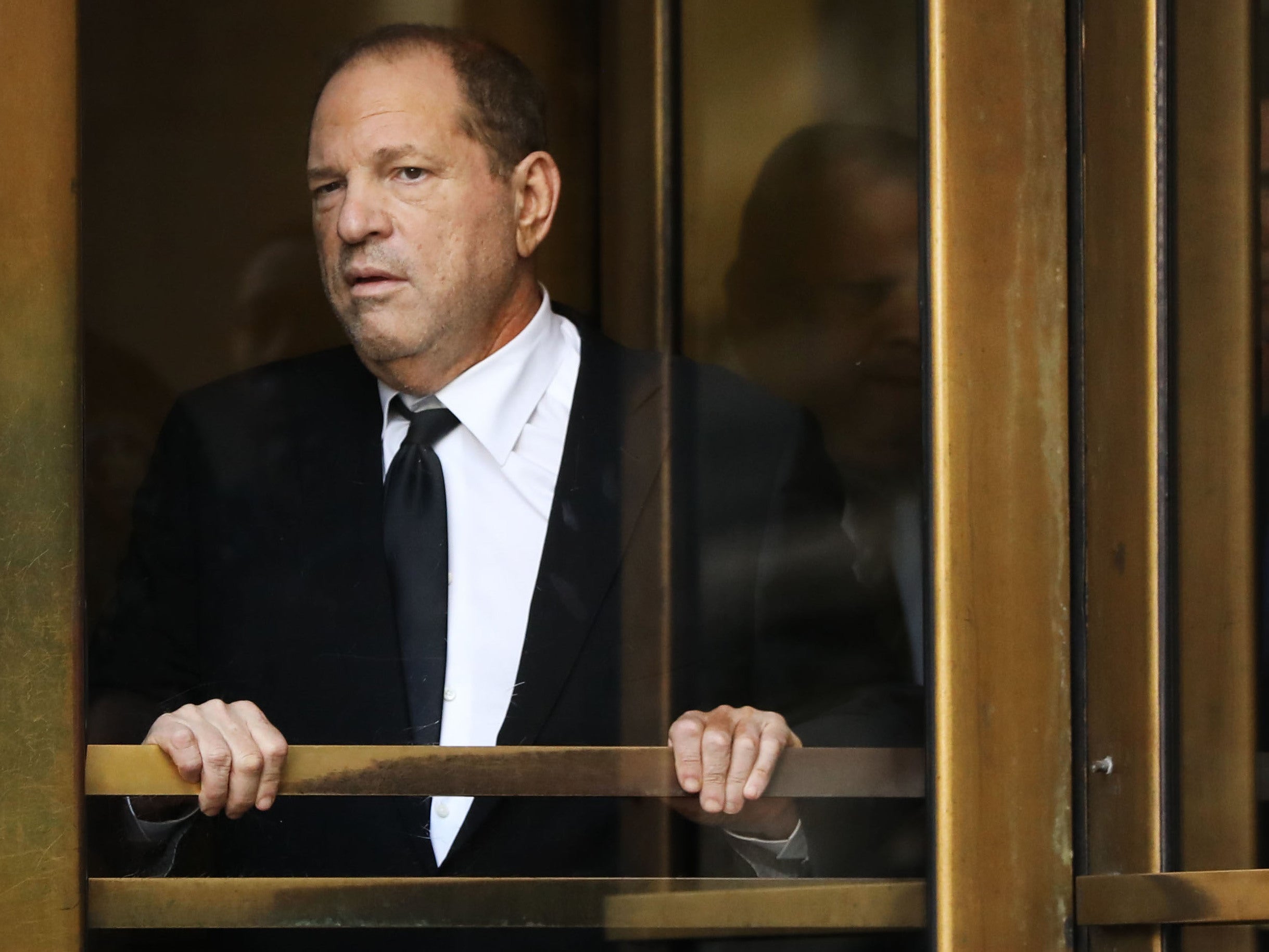It took 80 women to put Weinstein in jail – it’s time to stop protecting powerful, rich men
The guilty verdict against a rapist who used his wealth and power to abuse women in plain sight is a victory for #MeToo. But the ex-film producer is not an isolated case, says our arts columnist Fiona Sturges


Your support helps us to tell the story
From reproductive rights to climate change to Big Tech, The Independent is on the ground when the story is developing. Whether it's investigating the financials of Elon Musk's pro-Trump PAC or producing our latest documentary, 'The A Word', which shines a light on the American women fighting for reproductive rights, we know how important it is to parse out the facts from the messaging.
At such a critical moment in US history, we need reporters on the ground. Your donation allows us to keep sending journalists to speak to both sides of the story.
The Independent is trusted by Americans across the entire political spectrum. And unlike many other quality news outlets, we choose not to lock Americans out of our reporting and analysis with paywalls. We believe quality journalism should be available to everyone, paid for by those who can afford it.
Your support makes all the difference.With the Weinstein verdict on Monday came the collective sigh of relief – from the victims who have endured so much (to read their testimony, and the lawyers’ questions, is to have your heart broken) and who will finally see their abuser pay for his crimes, and the millions of women watching from the sidelines and hoping for change. Harvey Weinstein, who spent years using his wealth and intimidation tactics to keep accusers at bay, now faces a prison sentence of up to 25 years, and faces further charges in Los Angeles.
Much has rested on this case, not least the possibility that it could bring about a shift in the centuries-old status quo that has allowed girls and women to be objectified, groped, assaulted and silenced by men without repercussion or redress. So deeply ingrained is this power dynamic that, for most of us, it barely seemed worth commenting on. Until suddenly, as #MeToo gathered momentum, it did.
Is meaningful change too much to hope for? Look at the entertainment industry today and it certainly looks altered since 2017. Celebrated actresses have bravely shown how fame and wealth doesn’t protect women from the predations of a powerful man, and their voices have rung out in a world in which scores more women harbour their own trauma.
Creative narratives have changed too. Where once, stories of troublesome or abusive men were whispered in quiet corners between women, now they are splattered across the media and, increasingly, flagged up in books (Jeannie Vanasco’s memoir Things We Didn’t Talk About When I Was a Girl; Chanel Miller’s Know My Name; Kate Elizabeth Russell’s forthcoming My Dark Vanessa), films (Bombshell; The Assistant) and TV series (Apple’s The Morning Show, and the forthcoming documentary On the Record, about the alleged sexual misconduct of Def Jam founder Russell Simmons). That these stories are being told is a good thing, but it isn’t nearly enough. In the past two years, what has been called a movement has begun to look suspiciously like a trend, and trends – particularly ones with hashtags – have a habit of going out of fashion. This cannot happen.
Watching the entertainment industry take stock in the months after #MeToo was undoubtedly galvanising. At the 2018 Golden Globes, the women who attended wore black in solidarity with the victims of sexual misconduct. At the Oscars that same year, rousing speeches were made on the red carpet and the stage. But at the Golden Globes and the Oscars this year, women were still overlooked in the best director categories, despite there being strong contenders. Joaquin Phoenix did his utmost to flag up injustice in his acceptance speeches at both events, but at the Oscars ended up conflating race and gender struggles with those of dairy cows, noting: “I see commonality, I think, whether we’re talking about gender inequality or racism or queer rights or indigenous rights or animal rights, we’re talking about the fight against injustice.”
Women were also depressingly thin on the ground in this year’s Brit Award nominations, and so were brought on as the entertainment instead. They’ll sing! They’ll dance! Reward them with prizes? God, no. More alarming is how the industry has habitually covered up the alleged sexual misdemeanours of its stars, from Michael Jackson to R Kelly. The experiences of Kesha and her never-ending legal battles with the producer Dr Luke, whom she alleges sexually assaulted her, stands as a warning to any woman who dares challenge a powerful man in the music business.
Right-wing commentators like to rail against so-called cancel culture with the suggestion that the court of public opinion is powerful enough to derail a career and a life. Except that the comedian Louis CK, who admitted having repeatedly exposed himself to and masturbated in front of unconsenting women, has long been on the comeback trail, while the author and radio host Garrison Keillor, accused of sexual impropriety, has been doing live performances. For every high-profile man to lose his job over, or be convicted for, sexual misconduct, scores more will continue unimpeded.
It took upwards of 80 women to speak out against Weinstein to get him convicted of only two of the five charges against him, and 60 accusers and 14 years to jail the comedian and actor Bill Cosby for drugging and molesting Andrea Constand. Brett Kavanaugh, a man accused of sexually assaulting two women, sits on the Supreme Court. A self-confessed pussy grabber is in the White House, impervious even to impeachment proceedings. Seeking justice against powerful men is an uphill and often thankless task.
What is the solution – to raze the entire entertainment industry and rebuild it from the bottom up? As pleasing as that sounds, it’s not exactly workable. It’s one thing to go after individuals against whom a multitude of complaints have been made, it’s another to dismantle the structures that allow them to get away with their crimes. What is clear is that a major cultural shift is needed, and that doesn’t happen overnight.
For starters, we need to see more men calling out misconduct rather than turning away and pretending not to have noticed. We need lawyers and the criminal justice system to treat victims with greater understanding and compassion – given what they are currently put through, is it any wonder women give up and walk away? Within the arts, we need organisations, from record companies to film and TV networks, to look inwards and deal with the systems that isolate the vulnerable and protect powerful rich men. The Weinstein verdict is a start, but there’s a mountain to climb yet.